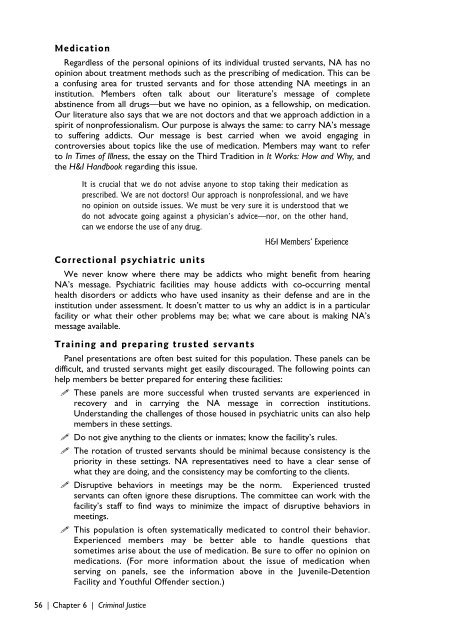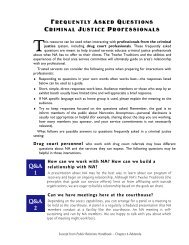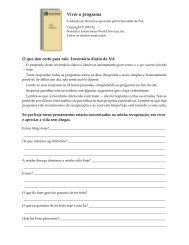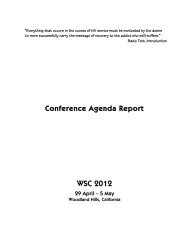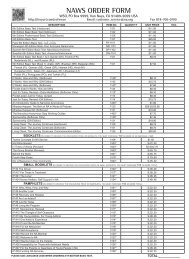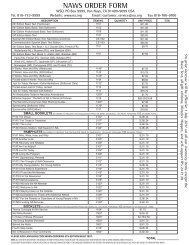Public Relations Handbook - Narcotics Anonymous
Public Relations Handbook - Narcotics Anonymous
Public Relations Handbook - Narcotics Anonymous
Create successful ePaper yourself
Turn your PDF publications into a flip-book with our unique Google optimized e-Paper software.
MedicationRegardless of the personal opinions of its individual trusted servants, NA has noopinion about treatment methods such as the prescribing of medication. This can bea confusing area for trusted servants and for those attending NA meetings in aninstitution. Members often talk about our literature’s message of completeabstinence from all drugs—but we have no opinion, as a fellowship, on medication.Our literature also says that we are not doctors and that we approach addiction in aspirit of nonprofessionalism. Our purpose is always the same: to carry NA’s messageto suffering addicts. Our message is best carried when we avoid engaging incontroversies about topics like the use of medication. Members may want to referto In Times of Illness, the essay on the Third Tradition in It Works: How and Why, andthe H&I <strong>Handbook</strong> regarding this issue.It is crucial that we do not advise anyone to stop taking their medication asprescribed. We are not doctors! Our approach is nonprofessional, and we haveno opinion on outside issues. We must be very sure it is understood that wedo not advocate going against a physician’s advice—nor, on the other hand,can we endorse the use of any drug.H&I Members’ ExperienceCorrectional psychiatric unitsWe never know where there may be addicts who might benefit from hearingNA’s message. Psychiatric facilities may house addicts with co-occurring mentalhealth disorders or addicts who have used insanity as their defense and are in theinstitution under assessment. It doesn’t matter to us why an addict is in a particularfacility or what their other problems may be; what we care about is making NA’smessage available.Training and preparing trusted servantsPanel presentations are often best suited for this population. These panels can bedifficult, and trusted servants might get easily discouraged. The following points canhelp members be better prepared for entering these facilities: These panels are more successful when trusted servants are experienced inrecovery and in carrying the NA message in correction institutions.Understanding the challenges of those housed in psychiatric units can also helpmembers in these settings. Do not give anything to the clients or inmates; know the facility’s rules. The rotation of trusted servants should be minimal because consistency is thepriority in these settings. NA representatives need to have a clear sense ofwhat they are doing, and the consistency may be comforting to the clients. Disruptive behaviors in meetings may be the norm. Experienced trustedservants can often ignore these disruptions. The committee can work with thefacility’s staff to find ways to minimize the impact of disruptive behaviors inmeetings. This population is often systematically medicated to control their behavior.Experienced members may be better able to handle questions thatsometimes arise about the use of medication. Be sure to offer no opinion onmedications. (For more information about the issue of medication whenserving on panels, see the information above in the Juvenile-DetentionFacility and Youthful Offender section.)56 | Chapter 6 | Criminal Justice


